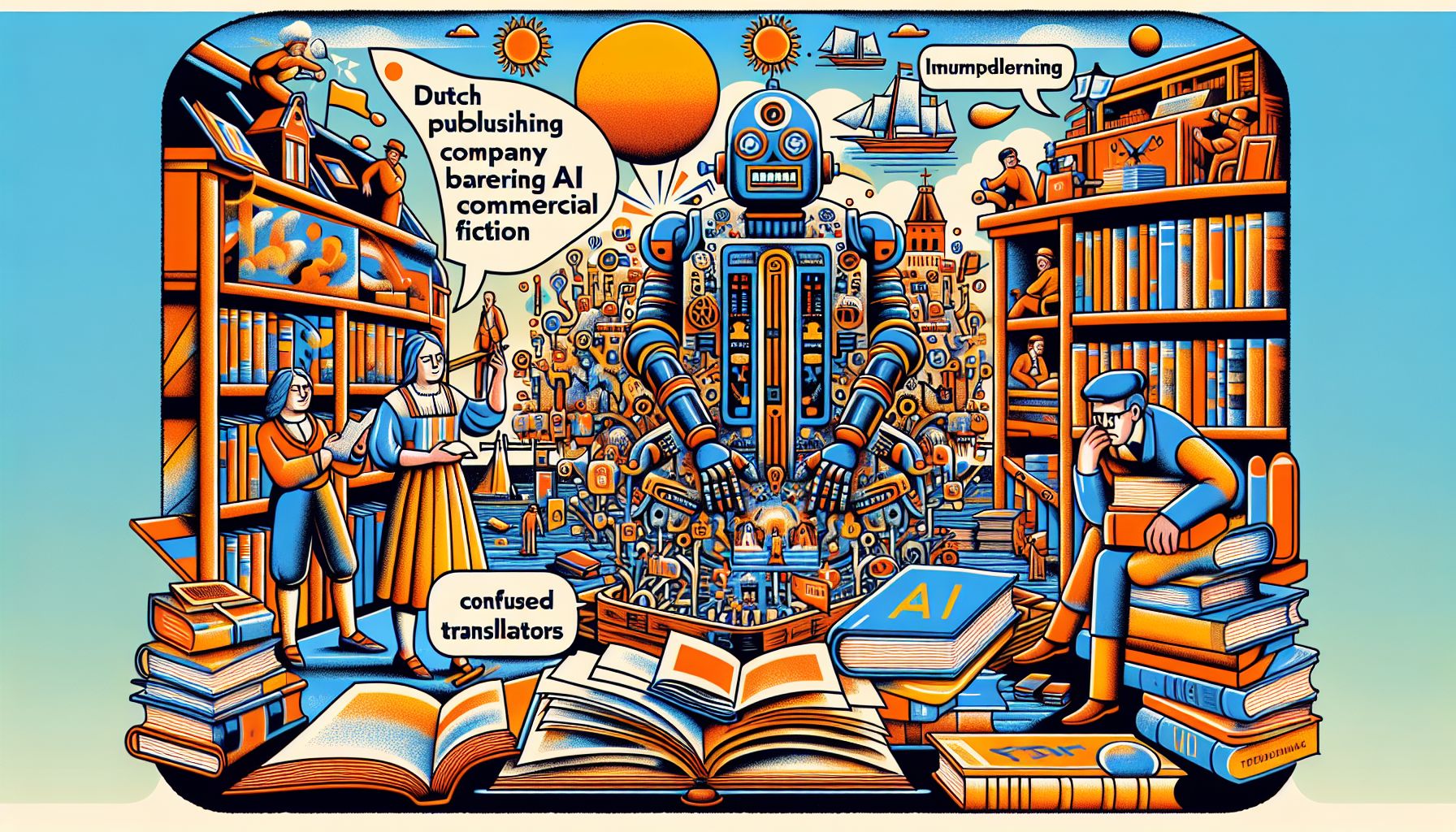Dutch Publisher Pioneers AI Translation for Commercial Fiction

Utrecht, Tuesday, 5 November 2024.
Veen Bosch & Keuning, the Netherlands’ largest publisher, is trialing AI-assisted translation for select commercial fiction titles. This move sparks debate about translation quality and the future of human translators in the publishing industry.
AI’s Role in Translation
Veen Bosch & Keuning (VBK), recently acquired by Simon & Schuster, has embarked on an innovative project to translate a selection of its commercial fiction titles into English using artificial intelligence. This initiative marks a significant step in the evolving landscape of publishing, aiming to expedite the translation process and enable Dutch authors to reach English-speaking audiences more swiftly. By focusing on commercial rather than literary titles, VBK intends to minimize the potential impact on nuanced literary expression, though this decision has not been without controversy.
Mechanics Behind AI Translation
The AI translation process employed by VBK involves generating initial translations using advanced machine learning algorithms, followed by a critical review and editing phase by human translators. This hybrid approach seeks to balance efficiency with quality, ensuring that the resulting translations maintain the integrity of the original text. However, critics argue that AI-generated translations, while potentially faster, might lack the subtlety and depth that human translators provide, particularly in capturing cultural nuances and idiomatic expressions.
Industry Reactions and Concerns
The publishing industry has reacted with a mix of intrigue and apprehension. Michele Hutchison, a renowned translator, has expressed concerns about the potential for blandness in AI-translated texts, highlighting the risk of losing the creative essence of the original works[1]. Similarly, David McKay, another experienced translator, warned against removing human translators from the equation, fearing that this could lead to inaccuracies and misinterpretations that might mislead readers[2]. These apprehensions are echoed by the Society of Authors’ Translators Association, which has noted a growing trend of translators losing work to AI technologies[3].
Potential Benefits and Future Prospects
Despite the concerns, the integration of AI in translation offers potential benefits, particularly in terms of efficiency and cost-effectiveness. By reducing the time and expense associated with traditional translation methods, AI could make it feasible for publishers to offer a wider selection of titles in multiple languages, thereby opening up new markets. VBK’s trial could pave the way for broader adoption of AI in the publishing industry, provided that the quality issues can be adequately addressed. This move is part of a larger trend of incorporating technology into creative fields, reflecting both the opportunities and challenges of AI innovation.

